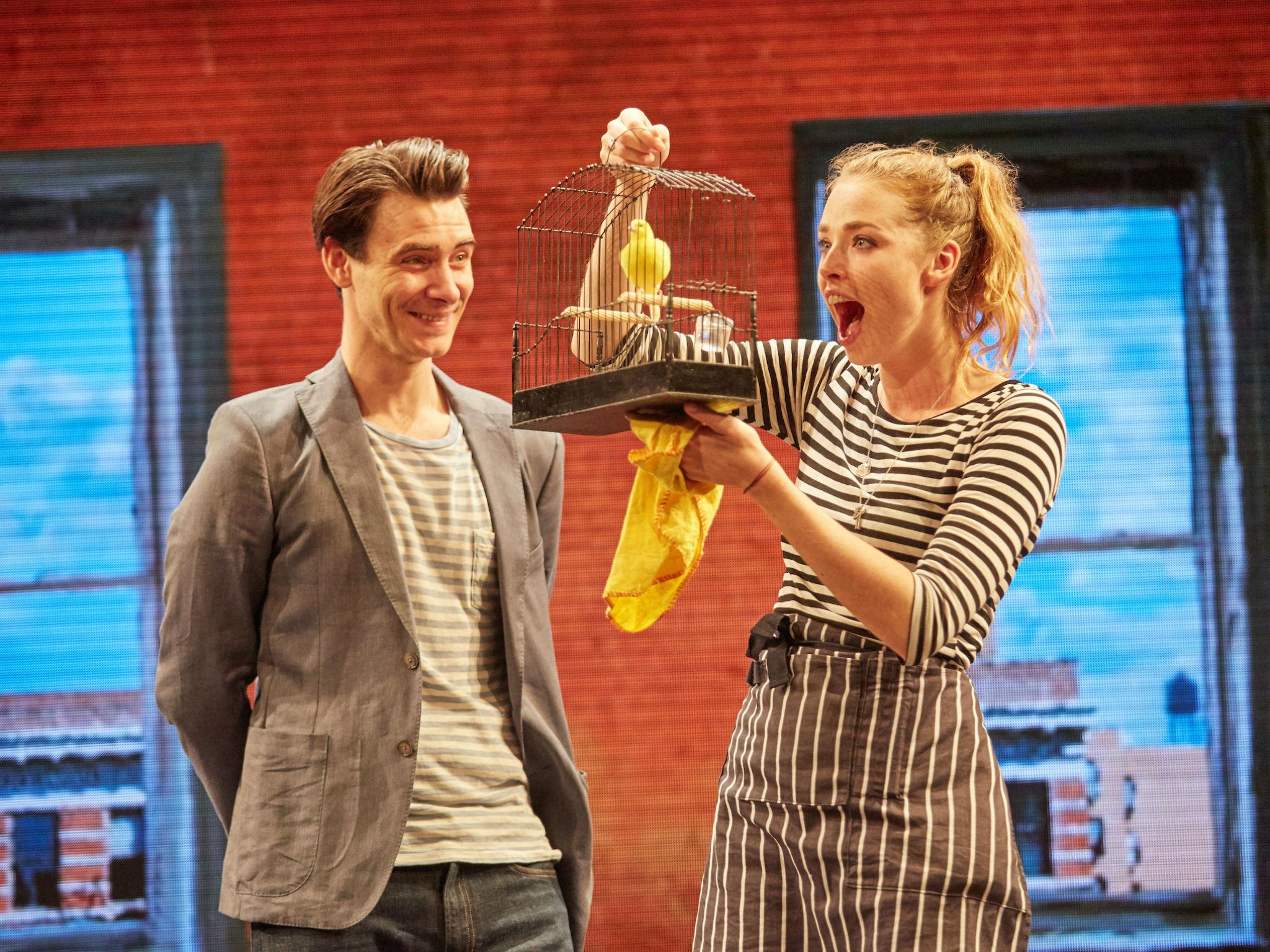Good Canary, Rose Theatre, Kingston, review: Patchy in its detail but ultimately packs a visceral punch
John Malkovich’s play never feels like a Hollywood-star-does-serious-theatre vanity project

John Malkovich may be better known as a film actor, but he has long also directed plays – including this one, which he has previously staged in France and Mexico; this marks the play’s English-language debut. If that sounds like an unlikely journey for a very American play to make to Surrey, well, he is not your average Hollywood star. And this never feels like your average Hollywood-star-does-serious-theatre vanity project, either.
Zach Helm’s play about a brilliant young writer named Jack whose soaring literary career appears stymied by his volatile wife Annie gets a stylish, stylised production under Malkovich’s direction, with strong design from Pierre-Francois Limbosch. It is at its best when Malkovich steps away from naturalism in favour of a tragi-comic dark surrealism that conveys the turbulent emotional – and chemical – states of its heroine. Annie is deeply troubled; abused as a child, she has an eating disorder and an addiction to speed. Despite a forceful, vital personality – which unhelpfully manifests itself in violent outbursts at glitzy parties that threaten to derail Jack’s career – Annie is really bent on becoming invisible. Shrinking; erasing herself. A cracking plot twist turns the knife further.
Freya Mavor, clearly a star on the rise herself, gives a terrific performance as Annie: an energetic, cartwheeling beanpole, she’s all angles and edge, her spikiness a form of self-defence. Mavor is both seductively charismatic, and vulnerable; a monster, and a scared little girl. Harry Lloyd is also good in the less showy part of the long-suffering Jack, whose forbearance at first seems inexplicable, but who grows in depth.

Elsewhere, there’s light relief from Ilan Goodman as an endearingly dopey drug dealer. Limbosch’s striking design projects various painterly backdrops against three large screens; these are distracting when they’re naff street scenes, but unsettling washes of green and blue and orange have an effective, expressionist ability to convey sickly emotional states. Text also gets projected: hastily scribbled to-do lists or, in one scene, its entire dialogue (or is it the silent subtext?). Such powerful design can smother the show at times, but when it works with the script it’s very effective. Drug-fuelled cleaning binges become cartoonish displays of mania, replete with comedy sound effects and Alice in Wonderland shifts in size and perspective; freak-outs in public are realised with terrifyingly exaggerated laughter and Munch-like animations climbing the walls.
Helm’s script, although always compelling, can be patchy in its detail. There’s little sense of the basis of Jack and Annie’s relationship – what were they like before her life span out of control, or if she’s always been like this then how on earth did they get together? We only ever really see a victim-carer dynamic. There are also too many plot details that simply don’t ring true: would a debut novelist, with a small imprint who previously only published pulp romances, really get a big splashy review in the New York Times? Jack’s attitude to curing Annie’s addiction is also hardly believable: he never seeks medical help, and instead makes her go cold turkey by bribing her drug dealer not to sell to her anymore. I somehow doubt New York has only one purveyor of amphetamines. Still, there’s some sparky dialogue and a comically inflated satire of the literary scene. And even if Good Canary is too in hock to the myth of troubled artistic genius, Annie’s self-destruction is painted with an unpatronising ferocity that ultimately packs a visceral punch.
Good Canary plays at the Rose Theatre in Kingston until 8 October
Join our commenting forum
Join thought-provoking conversations, follow other Independent readers and see their replies
Comments